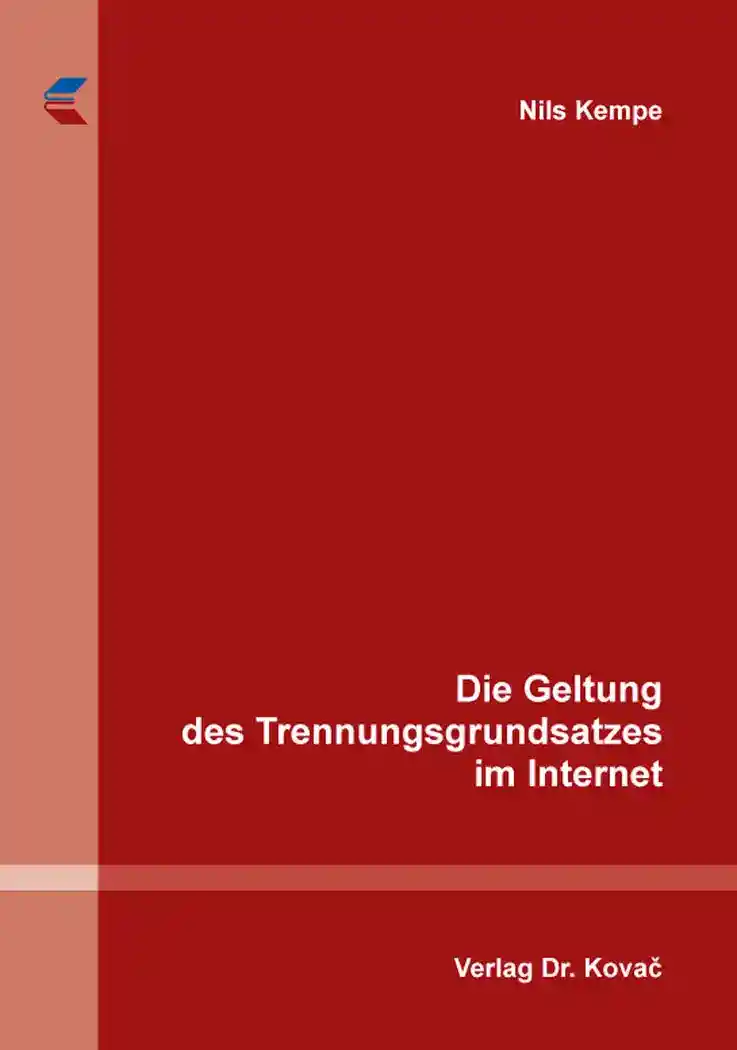Nils KempeDie Geltung des Trennungsgrundsatzes im Internet
Schriften zum Medienrecht, volume 44
Hamburg 2017, 688 pages
ISBN 978-3-8300-9348-0 (print) |ISBN 978-3-339-09348-6 (eBook)
About this book deutschenglish
The thesis covers the topic of the applicability of the “principle of separation”. In Germany, this principle has been subject to several studies on both press law and broadcasting law whereas regarding Internet law it is merely stated that it must be applied “adequately according to the specifics of the particular media”. The PhD thesis addresses this vague phrasing by using the European model of an average consumer who is reasonably well-informed and reasonably observant and circumspect. This model which was determined by the Unfair Commercial Practices Directive (Directive 2005/29/EC) needs to be specified due to multiple court rulings, predominantly the “Purely Creative”-verdict by the European Court of Justice which raised the question if the court planned to change its legal doctrine. Applying the European model of an average consumer also poses the question if and how it can be specified according to the specifics of the particular media. The “principle of separation” requires editorial content which has to be distinguishable from advertisement. Applying the principle on the Internet raises several legal issues. Additionally, there are semantic problems as well which result from the myriad kinds of new user-generated content in the age of the “Web 2.0” that pose the question if this sort of content can be classified as editorial content. The thesis covers these new problems and also includes current issues as well, e.g. user-generated product reviews on YouTube. Criteria developed by courts and by the literature for the classic media are identified and applied. Furthermore, the PhD thesis develops own criteria that can be utilized as well to practically determine if one is dealing with an editorial content that results in the applicability of the “principle of separation”. Different kinds of Internet content are being scrutinized utilizing these criteria to determine whether they can be considered as editorial content. Lastly, typical kinds of Internet advertisement are being examined whether there is an infringement of the “principle of separation”.
Keywords
E-Comerce-RichtlinieErwartungshaltung des MedienrezipientenInternetInternetrechtInternetspezifische Besonderheiten des VerbraucherleitbildesInternetwerbungKennzeichnungsgrundsatzMedienrechtNative AdvertisingRedaktionelle InhalteRichtlinie über Audiovisuelle MediendiensteRichtlinie über Unlautere GeschäftspraktikenRL 2005/29/EGRL 2010/13/EUTrennungsgrundsatzVerbraucherleitbildWettbewerbsrechtIhr Werk im Verlag Dr. Kovač

Möchten Sie Ihre wissenschaftliche Arbeit publizieren? Erfahren Sie mehr über unsere günstigen Konditionen und unseren Service für Autorinnen und Autoren.
